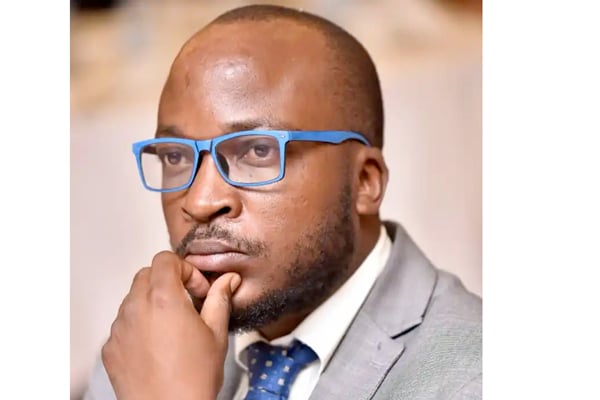Prime
Al-Shabaab killed 54 UPDF soldiers in Somalia attack – Museveni

President Museveni at Kyankwanzi on June 1, 2023. PHOTO/PPU
What you need to know:
- Mr Museveni had in an earlier statement said that the soldiers did not perform as expected and panicked which disorganised leaving the al-shabaab to take advantage and eventually overrun the base and destroy equipment.
At least 54 soldiers were killed during the May 26 deadly attack on an African Union Transition Mission in Somalia (ATMIS) forward operating base manned by Ugandan troops, President Museveni has said.
“We discovered the lifeless bodies of fifty-four fallen soldiers, including a commander. These terrorists attempted another ill-fated attack on Baraawe Town, but our forces dealt a significant blow, forcing them to flee,” Mr Museveni tweeted Saturday.
According to him, the mistake was made by two commanders whom he identified as Maj Oluka and Maj Obbo, who ordered the soldiers to retreat.
“They have been apprehended and will face charges in the Court Martial. Our soldiers demonstrated remarkable resilience and reorganized themselves, resulting in the recapture of the base,” the president added shortly after updating ruling party MPs during a retreat in Kyakwanzi.
Following the dawn raid in Bulo Marer, Lower Shabelle region, 130 km southwest of the Somali capital Mogadishu, the terror group have issued statements suggesting that up to 137 Ugandan soldiers perished.
Several other troops were reportedly taken prisoner, al Shabaab also claimed.
Speaking during the retreat of the NRM’s parliamentary caucus at the National Leadership Institute Kyankwanzi on Wednesday, Mr Museveni said that if “it was not because of corruption within the army,” the attack would not have succeeded.
The corruption, he said, started here at home during recruitment when soldiers who were not combat ready found themselves in Somalia through corrupt ways.
He particularly blamed two officers at the rank of major.
“I will get the identity of the other one. But there is one called Okia, who apparently was in the army shop in Kampala. He is the one who told the soldiers to run away. So, he is under arrest,” the President said.
Mr Museveni had in an earlier statement said that the soldiers did not perform as expected and panicked which disorganised leaving the al-shabaab to take advantage and eventually overrun the base and destroy equipment.
“The panic, it seems, was totally unnecessary because, in fact, both the anti-tank ditch and our soldiers had destroyed the three vehicles of explosives outside the FOB. The suicide bombers or whatever were forced to blow themselves up before they gained entry into the base,” Museveni said.
Even as Lt Gen Kayanja Muhanga looks into the operational lapses and failures leading up to the military disaster at Bulo Marer, questions continue to be asked about the quality of the current crop of Ugandan military personnel deployed in Somalia.
It is believed that his previous tours of duty as UPDF deputy contingent commander in Mogadishu, and leader of Battle Group Eight, will help shed more light on the drop in standards – reportedly fuelled by the corruption the President has alluded to.
The president has also pointed out that, until now, the UPDF was a capable force that had no previous difficulties in dealing with al Shabaab threats.
“But it seems at some stage, some of the people who organise, they put the names of their bodyguards, personal assistants ... They create some sort of ad hoc instead of integral units,” he said.
The President also announced that an army Board of Inquiry (BoI) has been set up by the Chief of Defence Forces.
“It is criminal for anybody involved, to send into such a theatre soldiers who are either not suited for that mission or not properly prepared for it. Details will come out after the BoI has finished its work”.
This was not the first time President Museveni is decrying corruption around the Somalia mission.
In 2013, the President ordered an investigation following reports linked to unspecified US officials which said that while the UPDF are good fighters some of their commanders in Somalia are “thieves”.
In January, Mr Museveni advised army officers to fight corruption if they don’t want to be enemies of the army and Uganda at large.
He was speaking at the maiden graduation ceremony of the National Defence College Uganda (NDC-U) in Buikwe District on January 19.
“The army is moving well but I think you should emphasise the issue of corruption once you happen to be deployed. Make sure corruption which has been a problem in the civilian sector does not come to the army. We have had some cases of corruption. Corruption is very dangerous. If you steal fuel from the army, you steal supplies, you steal money, and you are an enemy of the army. Corruption is not the future,” Mr Museveni said.
Having put up an impressive showing since 2007 when deployed in Somalia as the first Amisom force, the Bulo Marer raid marks a watershed period in the UPDF’s otherwise successful expeditions across Africa.



